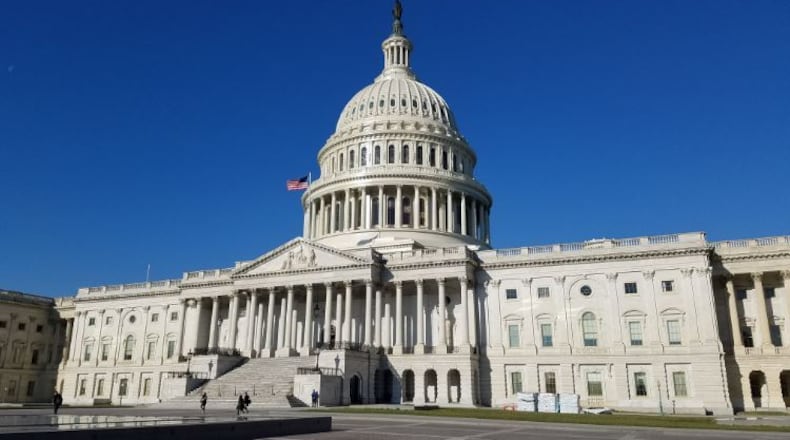Two days after the FBI Director confirmed that an investigation was underway into election meddling by Russia and any ties to the Trump Campaign, the Republican Chairman of the House Intelligence Committee announced that U.S. Intelligence - while monitoring foreign intelligence targets - had legally monitored some actions of the Trump transition, and maybe even some communications of Mr. Trump himself.
Here is what we know:
1. What is in this new information? House Intelligence Chairman Rep. Devin Nunes (R-CA) said he had been provided with raw foreign intelligence intercepts which showed information related to President-Elect Trump and members of the Trump Transition team, which he said had been wrongly circulated widely inside the Intelligence Community, even materials that Nunes claimed had no intelligence value. Nunes would not identify who had provided him with the information, which he seemed to indicate came through regular channels, possibly by a whistle blower inside the U.S. Intelligence Community - it just wasn't clear. But what was clear was that he took the information straight to President Trump and the White House before telling his committee, and Democratic members on that panel.
2. Nunes: It has nothing to do with Russia. One puzzling part of the dramatic announcement by Nunes was that the subject matter did not relate to the probe into election meddling by Russia in 2016, or ties between Russia and the Trump Campaign. If that indeed is the case, then the foreign communications monitored by U.S. Intelligence must have been focused on some other overseas intelligence targets which were being monitored by the United States. Was it other nations that are on the radar of U.S. Intelligence? Certain foreigners who are the target of a criminal investigation? It wasn't clear.
3. What is incidental collection? Is it legal? This is one of those bureaucratic phrases that sounds complicated, but really isn't. First, incidental collection of an American during a wiretap of a foreigner is totally legal. In this situation (as described by Nunes), officials of the Trump Transition - or maybe even the President-Elect at the time - could have been in contact with foreign persons who are under surveillance. When that happens, that is known as "incidental collection." While there are rules on how that is dealt with, just because a U.S. citizen appears on a wiretap involving a foreigner does not mean that U.S. Intelligence suddenly stops listening. Nunes said the intercepts showed that information with no intelligence value was circulated widely inside the Intelligence Community, and raised questions about how named individuals were dealt with.
4. Democrats hit the roof. Democrats were outraged by the Nunes move, immediately saying that it raises questions about how Nunes could lead a bipartisan review of the election interference charges against Russia. The Top Democrat on the House Intelligence Committee, Rep. Adam Schiff (R-CA) expressed his displeasure in a statement, and at his own news conference. "You don't take information that the committee hasn't seen and present it orally to the press and the White House, before the committee has a chance to even vet whether it is significant."
5. New calls for an independent probe on Russia. The dustup over the Nunes announcement opened a new door for Democrats to demand an independent investigation of the issue of Russian meddling in the 2016 elections, as Democrats have long been suspicious of Nunes, who was a member of the Trump Transition team. "Unfortunately, I think the actions of today throw great doubt into the ability of both the Chairman and the committee to conduct the investigation the way it ought to be conducted," Schiff said at his own news conference.
6. More partisan elbows from both sides. It didn't take long for both parties to weigh in, for and against Nunes. "The unprecedented comments of Chairman Nunes are an act of diversion and desperation," said House Democratic Leader Nancy Pelosi, who labeled the Nunes brief of President Trump, "highly irregular conduct." On the other side, the statements were just as pointed. "The Chairman's statements today detailing the incidental collection and dissemination of the Presidential transition team's communications is highly concerning," said Rep. Mike Turner (R-OH).
7. White House welcomes Nunes information. After taking all sorts of flak for claiming that he had been wiretapped by President Obama, President Trump and his aides found themselves with some new ammunition in their arguments about how U.S. Intelligence has treated Mr. Trump. Press Secretary Sean Spicer told reporters that the Nunes information was a "startling revelation." The President - who has routinely ignored questions about his Twitter wiretap claims - was more than happy to give a quote to the TV cameras, saying it made him feel vindicated.
This could well boil over again next week, when the House Intelligence Committee holds a second public hearing about Russia on Tuesday, March 28.
About the Author
The Latest
Featured



